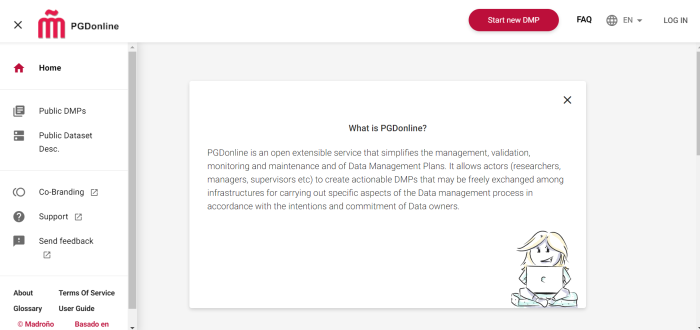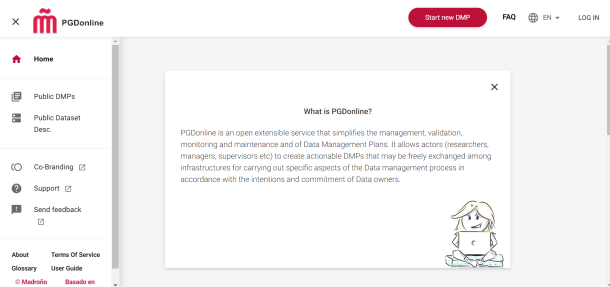Consocio Madroño's OpenDMP instance to support machine actionable and FAIR DMPs in Spain

In the Madrid region of Spain, Consorcio Madroño (consorciomadrono.es/en/) has been actively supporting research and innovation (R&I) for twenty five years. Madroño Consortium has six universities: UAH, UAM, UC3M, UNED, UPM and URJC .
The OpenDMP production instance URL is https://pgd.consorciomadrono.es . https://pgdold.consorciomadrono.es is our old dmp roadmpap instance. It is active yet but it is not usable to create new plans, only to edit and access to the old ones.. Since then, the rapidly changing landscape in RDM, boosted also by the realisation of the European Open Science Cloud (EOSC), contributed to new DMP standards (RDA DMP Common Standard, software management plans, etc) and advancements towards machine actionability. To capture those in the Spanish R&I ecosystem, Consorcio Madroño decided to migrate to the OpenDMP software as the solution for dynamic and automated data management planning. OpenDMP was jointly developed by OpenAIRE and EUDAT, and is the software behind OpenAIRE’s ARGOS (argos.openaire.eu) DMP service. Hence, OpenAIRE supported the transition to OpenDMP, among other things, by building a migration mechanism for DMPs and users to get all information from PGDOnline and by customising features, such as for publishing DMPs to the Consorcio Madroño’s repository. Today, the efforts of Consorcio Madroño continue with more service integrations with the new DMP platform to cultivate an interlinked RDM web.
The demo is about Consorcio Madroño's OpenDMP instance (https://pgd.consorciomadrono.es/home) that is available in the Madrid region for Universities to create their own machine actionable templates and researchers to use them to write and publish DMPs as FAIR outputs. The demo will be split into two sections focusing on the following stakeholder groups:
a. Librarians and data stewards: to walk them through the process and the features available to create machine actionable templates in the platform, such as the collection of inputs (e.g. open-ended, multiple selection, tables, upload images) and APIs (e.g. publications, data, metadata, repositories).
b. Researchers: to train them in writing and publishing FAIR DMPs with the new platform.
Organisations involved
Presenters

